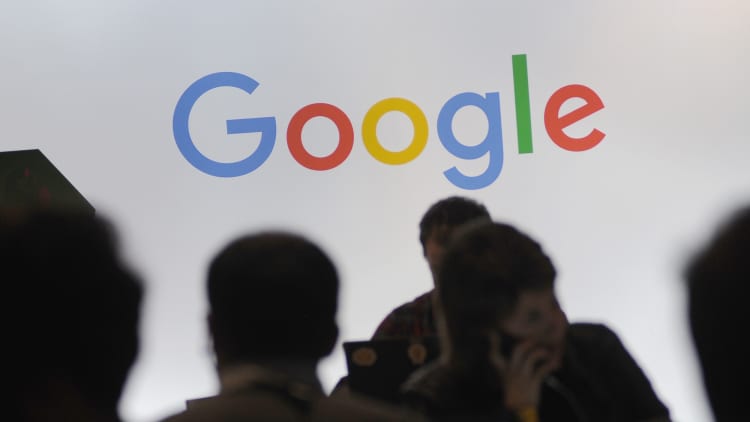
Google and Facebook are doubling down on products to promote content like news and entertainment articles — but that doesn't mean publications should partake, according to one technology investor.
"Google should be looked at — is being looked at — as the enemy of content companies," Jason Calacanis said on Wednesday. "They've really screwed over their partners consistently over the years."
Calacanis, author of "Angel: How to Invest in Technology Startups," has invested in companies like Uber and Tumblr and founded numerous online media start-ups.
By putting the answer to a query in the box a the top of the search results page, instead of a link to the source of the information, Google has been working around the same partners it should share revenue with, Calacanis told CNBC's "Squawk Alley."
"You can't trust Facebook and Google with your product. You shouldn't," Calacanis said.
It should be noted that Calacanis has a historical beef with Google. Calacanis has in the past blamed Google's Matt Cutts for "killing" his business Mahalo, although he's also acknowledged that his plan to grow traffic to Mahalo was "misguided." More recently, he suggested in a tweet storm that the EU's antitrust fine against Google could have been avoided if the company had been more honest and generous with content partners:
Despite Calacanis's claims, the media industry does not have a consistently negative view of these giants. For instance, Facebook has been working with outlets like The Washington Post, Fox News and BuzzFeed, and Google invests in journalism research. Both platforms help drive traffic and exposure for media outlets. (The two companies were not immediately available to comment on Calacanis' comments.)
That said, there is a growing chorus questioning their power. Some outlets like The New York Times and Wall Street Journal have tightened their distribution of free articles on search and social media, opting to focus on subscriptions.


